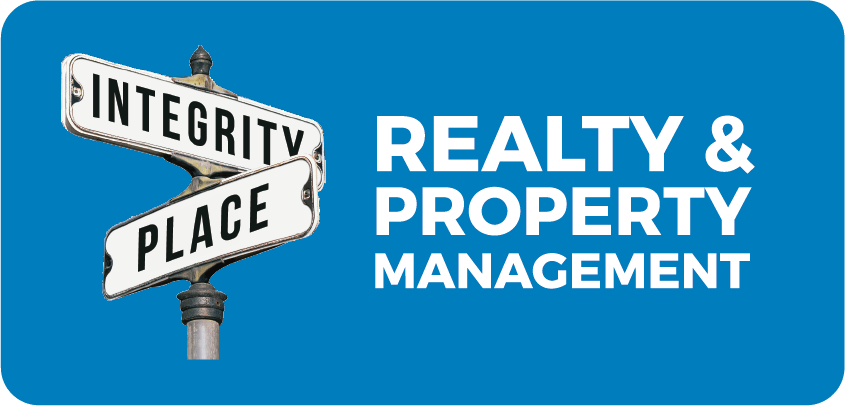How to Manage Rental Properties

Owning rental property can be a great investment, but managing it yourself comes with challenges. From finding tenants to handling maintenance and legal compliance, self-management requires dedication and expertise. If you’re wondering how to manage properties effectively, whether remotely or in person, this guide covers everything you need to know.
Do You Need a License to Manage a Rental Property?
The answer varies depending on location. In Utah, a license is required if you manage properties on behalf of others for a fee. This ensures that those managing properties on behalf of others meet the legal requirements and standards for handling rental properties professionally.
However, if you are managing your own rental property, you do not need a license. That being said, understanding landlord-tenant laws and best practices is essential to avoid legal issues. Even without a license, you will need to familiarize yourself with regulations surrounding rent control, tenant rights, and fair housing laws. Failing to comply with these regulations can lead to fines or lawsuits. It’s important to stay informed and seek legal advice when needed to protect yourself as a property owner.
How to Manage Your Own Rental Property in 5 Easy Steps
Managing your own rental property can be a rewarding endeavor, but it requires dedication and careful planning. Here’s a breakdown of the steps involved in effective property management:
1. Perform a Thorough Tenant Screening
The first and most critical step in property management is finding the right tenants. A good tenant is one who pays rent on time, respects your property, and follows the lease terms. Advertising on platforms like Zillow, Craigslist, and local classifieds is a good way to attract renters. However, attracting potential tenants is just the first step in effectively managing properties.
Thorough
tenant screening is crucial. Running background checks and credit checks ensures that tenants have a stable rental and financial history. This screening process can include criminal history checks, previous landlord references, eviction history, and financial stability. It’s important to understand the
Fair Housing Rights and Obligations to avoid discrimination based on race, gender, religion, or other protected categories when screening tenants.
2. Create a Lease Agreement
Once you have found a qualified renter, the next step is drafting a solid lease agreement. This lease should clearly outline rent payment terms, late fees, maintenance responsibilities, and tenant expectations. It’s essential to include provisions related to security deposits, lease term length, pet policies, and subletting.
A well-drafted lease agreement not only helps prevent misunderstandings but also protects both parties in case of a dispute. When creating your lease agreement, make sure to review state-specific landlord-tenant laws.
3. Establish a Rent Collection Procedure
Rent collection is another key aspect of property management. Using online payment systems like ACH transfer, PayPal, or property management software can streamline the process and reduce the chances of late or missed payments, especially when managing a rental property remotely. Online platforms allow tenants to set up recurring payments, ensuring that rent is paid on time.
You should also clearly communicate and enforce late fees. Setting up automated reminders and enforcing late payment policies ensure tenants are aware of the consequences of non-payment. It’s also a good idea to keep accurate records of all rent payments and expenses related to the property for tax purposes.
4. Plan for Routine Property Maintenance
Routine property maintenance is necessary to keep your rental property in good condition. Schedule regular inspections and make sure to inspect areas such as plumbing, heating and air conditioning systems, and the roof.
Building a reliable network of vendors, including plumbers, electricians, and general contractors, will allow you to address maintenance requests promptly. If you are managing your property remotely, it’s especially important to have reliable contacts available to handle emergencies and repairs.
Preventative maintenance is equally important. Seasonal tasks such as cleaning gutters, checking for mold, and servicing HVAC systems can help prolong the life of your property and reduce the need for costly repairs.
5. Ensure Legal Compliance
Staying legally compliant is critical for landlords in Utah. Understanding state-specific rental regulations, such as tenant rights and security deposit laws, helps prevent legal disputes. Compliance with housing laws is equally important to avoid discriminatory practices when selecting tenants. Familiarize yourself with your local rent control laws, eviction procedures, and security deposit regulations. If eviction becomes necessary, following the correct legal procedures is essential to protect yourself from potential lawsuits or penalties.
Additionally, landlords in Utah must understand the specific rules around tenants’ rights to privacy, notices, and requirements for terminating leases. Ensuring that you comply with all local and state regulations will help you avoid costly mistakes.
How Many Properties Can One Person Manage?
The number of properties one person can effectively manage depends on various factors, including experience, organization, and available time. Many self-managing landlords find that managing one or two properties is manageable, especially if they are in the same area. However, some experienced landlords with a solid system in place can handle multiple properties simultaneously.
If managing your properties becomes overwhelming, it may be time to consider hiring help. This could mean
employing a property management company or hiring a local contact to assist with day-to-day operations. When deciding how many properties to manage, consider your ability to handle tenant communication, property maintenance, and other responsibilities.
Do I Need a Property Manager?
If managing your rental property feels like a full-time job, hiring a professional property manager can be a smart investment. A property management company takes care of tenant screening, rent collection, maintenance, and legal compliance, allowing you to focus on other priorities while still benefiting from rental income.
Property management companies
typically charge a percentage of the monthly rent, usually between 8%–12%. While this comes at a cost, it can save you time and stress, particularly if you own multiple properties or manage rentals in a different location. A property manager will ensure that you stay compliant with local regulations and help you navigate any issues with tenants, maintenance, or evictions.
Let Integrity Place Handle Property Management for You
Managing your own property can be rewarding, but it’s also demanding. If you’re struggling with the time commitment or legal complexities, Integrity Place Realty & Property Management offers expert property management solutions in Utah.
For decades, we’ve helped property owners maximize their ROI while handling the stress of property management. From strategic marketing and tenant screening to routine maintenance and rent collection, our experienced team ensures your rental runs smoothly.
Whether you own a home, condo, apartment, or commercial property in Utah, we provide comprehensive services tailored to your needs.
Contact Integrity Place
today to learn how we can help you manage your property effortlessly.










